Conveyor Systems | Fort Wayne, IN
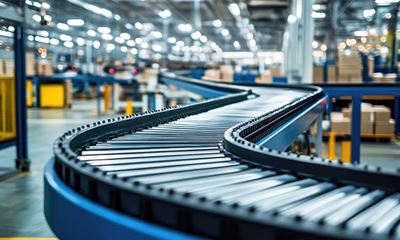
Associated designs conveyor systems and other warehouse automation equipment in Fort Wayne and throughout the Midwest. To learn more about our automation solutions, call us today at (260) 482-9556
Conveyor systems can increase the productivity of your warehouse, improve safety practices and meaningfully reduce employee costs.
Modern conveyor systems can transport everything from heavy pallets to small packages throughout your warehouse and they are a fundamental part of contemporary warehouse automation.
Conveyors fall into three different classes for the vast majority of material handling systems:
- Powered belt or roller conveyors (for carton handling)
- Powered roller or chain systems (for pallet handling)
- Non-powered conveyors
Powered Package Handling Roller or Belt Conveyors
Powered roller or belt systems are generally used for smaller items like cartons and packages.
Belt systems are usually used for moving packages along a line, while rollers are employed for collecting cartons in specific areas along the line.
Belt Conveyors
In use since the early 1900’s, conveyor belts are a fundamental part of many material handling configurations. Less expensive than roller systems and oftentimes better suited to certain functions like transporting lightweight products, belt systems have a place in most material handling configurations.
Belt conveyors employ a long, looped belt that rides a series of non-powered rollers on a metal substructure called a slider belt. A motor drives a pulley that turns the belt and advances products down the conveyor line.
Belts can be made of a range of materials and surfaces in accordance with the purpose and role of the conveyor. For instance, a conveyor belt surface may be totally flat in segments where cartons need to glide off the line and may have a ridged surface on segments where goods have to be advanced up slopes.
Roller Conveyors
While belt conveyors still have a place in most operations, newer roller systems offer a number of advantages in many modern material handling uses.
First and foremost, roller conveyors can enable accumulation of objects on the line where belt conveyors cannot. This is an important contrast because there are countless scenarios where products must hold and accumulate in material handling applications. Accumulation processes are often used when items must be temporarily halted before being passed to sorters or palletizers.
Advanced roller systems also have the ability to track items on the line and implement zero pressure accumulation, meaning none of the accumulating objects come into contact as they slow down and come to a stop.
Roller designs are comprised of several cylinder rollers that are generally set up in one of these ways:
- Line-shaft conveyors: in a line shaft conveyor, a long tubular rod runs underneath the rollers perpendicular to them and is connected to each roller with flexible O-rings. A motor turns the shaft, and accordingly rotates the cylinders via the attached O-rings. Line-shaft configurations are the most cost efficient of all roller conveyors, but they also require the most repair because the linkages between the rollers and the shaft need frequent readjustment and sometimes fail.
- Belt-driven roller conveyors: As the name suggests, these systems are powered by a belt that lies underneath the roller platform. A motor drives the belt, which advances the roller cylinders.
- MDR conveyors: Motorized roller conveyors, frequently called motor-driven roller (MDR) conveyors, are set up in segments where only one roller from each segment is driven by it's own power source. That individual powered roller is connected to the others in that segment via rubber O-rings, and consequently rotates all the cylinders in the section. MDR units are placed in sequence to create the conveyor line.
Motorized roller conveyors are known for their energy efficiency because: a.) they generally run on 24 volt DC motors and b.) these motors are configured to engage only when an object is present on the rollers, and as a result they are motionless much of the time.
Although motorized roller conveyors cost more than line-shaft and belt drive rollers, power expenses and maintenance expenses are generally quite a bit lower than the other options mentioned. - Segmented belt conveyor: the principle of MDR systems eventually inspired the idea of segmented belt conveyors. Similar to MDR systems, segmented belts operate individually and feature several of the same benefits of motor driven rollers, including accumulation potential.
Powered Pallet Handling Conveyors
Powered pallet-handling conveyors are many times paired with palletizers and automatic storage and retrieval systems. Pallet handling conveyors can generally deal with gross weights of up to 4,000 lbs and run at a much slower rate than package handling conveyors, sometimes at speeds of just a few pallets per minute.
Pallet-handling conveyors come in one of two types: chain conveyors and roller conveyors.
- Pallet-handling chain conveyor: perhaps the simplest of all conveyor systems, pallets on a chain conveyor line are positioned directly on two or more lengths of heavy duty chain. A drive mechanism advances the lengths of chain which in turn advance the pallets down the line.
- Pallet-handling roller conveyor: comparable to MDR conveyors, pallet handling roller conveyors use larger rollers and heavy duty chains to join the powered roller to the rest of the cylinders in a conveyor segment.
Non-Powered Conveyors
Roller or skatewheel systems are the conventional types of non-powered conveyors used in material handling. These types of systems use inertia and gravity to move smaller loads though warehouses, pick modules, workstations, automated sorters, loading docks and package sorting areas.
Skatewheel systems are made up of many separate wheels and need very little energy to sustain the inertia of objects as they advance along a conveyor line. On the whole, they advance objects faster than non-powered roller conveyors and they have more adaptability when it comes to layout. Considering they’re standalone wheels instead of a belt, they can be used in curvilinear segments of a conveyor system.
Typically non-powered roller configurations are less expensive than skatewheel conveyor configurations. They are often used for work stations, pick modules, and other zones where its useful to have a level surface to perform tasks. Roller conveyors are also used to slow products down that are coming from higher speed mechanisms like sorters so that workers can keep pace with conveyor output.
Both types of non-powered systems have a distinct disadvantage compared to powered conveyors: by employing gravity and inertia to move materials you lose the ability to control the force applied to those items. Put another way, you have very little control of the speed and inertia of materials on your line.
Conveyor Companies Near Me
If you’d like a complete evaluation of conveyor system possibilities for your warehouse, distribution center or other material handling operation, contact an expert at Associated.
The Associated Fort Wayne service area includes Fort Wayne, Gary, South Bend, Hammond, Elkart, Shipshewana, Angola, Auburn, Merriville, Valparaiso, Plymouth, Warsaw, Columbia City, New Haven, Huntington, Wabash, Marion and all surrounding areas.
Associated | Fort Wayne Material Handling Equipment Supplier
4310 Illinois Rd Unit 1517
Fort Wayne, IN 46804
(260) 482-9556
You May Also Like:
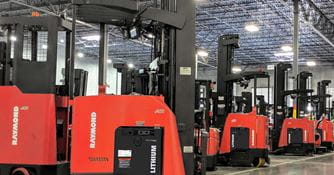
Forklift Rental | Fort Wayne, IN
Associated is a Fort Wayne based forklift dealer offering a wide range of lift truck rental options. We have one of the largest rental fleets in the Midwest.
Learn More
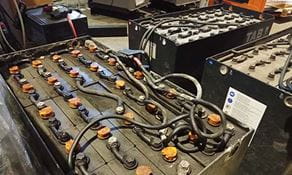
Forklift Battery| Fort Wayne, IN
Associated is a Fort Wayne material handling equipment supplier offering forklift batteries. We are backed by one of the largest service and parts divisions in the Midwest.
Learn More
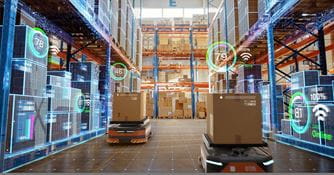
Warehouse Automation | Fort Wayne, IN
Associated is a Fort Wayne material handling equipment supplier offering warehouse automation systems. We are backed by one of the largest service divisions in the Midwest.
Learn More
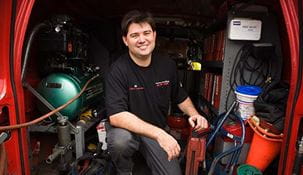
Forklift Repair & Service | Fort Wayne, IN
Associated is a Fort Wayne forklift dealer offering repair and service for all type of forklifts. We are backed by one of the largest parts divisions in the Midwest.
Learn More
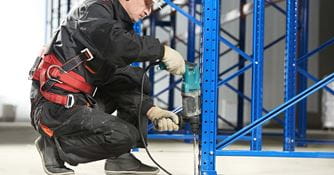
Pallet Rack Inspection, Repair and Installation | Fort Wayne, IN
Associated is a Fort Wayne material handling equipment supplier offering pallet rack repair, inspection, and installation. We are backed by one of the largest service divisions in the Midwest.
Learn More
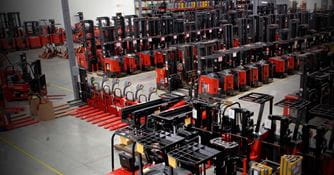
Used Forklifts | Fort Wayne, IN
Associated is a Ft Wayne forklift dealer offering both new and used lift trucks. We are backed by one of the largest service and parts divisions in the Midwest. <br>
Learn More
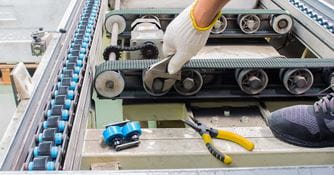
Conveyor Repair and Parts | Fort Wayne, IN
Associated is a Fort Wayne material handling equipment supplier offering conveyor repair and parts. We are backed by one of the largest parts divisions in the Midwest.
Learn More
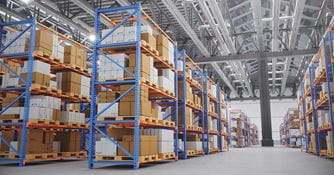
Pallet Racking | Fort Wayne, IN
Associated is a Fort Wayne material handling equipment supplier offering many types of pallet racks. We are backed by one of the largest parts divisions in the Midwest.
Learn More
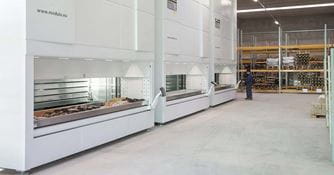
Vertical Lift Modules (VLM) | Fort Wayne, IN
Associated is a Fort Wayne material handling equipment supplier offering vertical lift modules. We are backed by one of the largest parts divisions in the Midwest.
Learn More
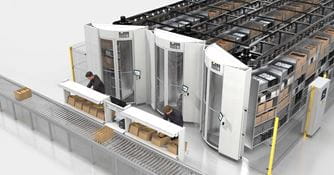
Modula Systems | Fort Wayne, IN
Associated is an authorized distributor for Modula equipment in the Fort Wayne area. We are backed by one of the largest service and parts divisions in the Midwest.
Learn More
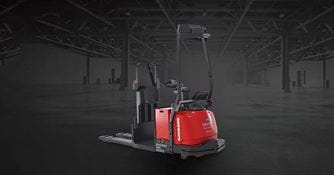
Autonomous Guided Vehicles (AGV) | Fort Wayne, IN
Associated sells AGVs and other warehouse automation equipment in Fort Wayne and throughout the Midwest. We are backed by one of the largest service and parts divisions in the Midwest.
Learn More
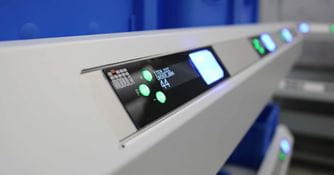
Order Picking Systems | Fort Wayne, IN
Associated offers advanced picking systems and other warehouse automation equipment in Fort Wayne and throughout the Midwest.
Learn More
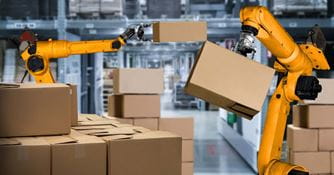
Warehouse Robotics | Chicago, IL
Learn More
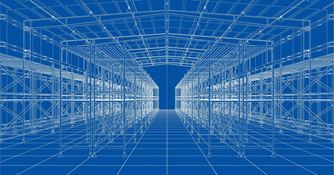
Warehouse Design | Fort Wayne, IN
Associated offers complete warehouse design and engineering services in Fort Wayne and throughout the Midwest.
Learn More

